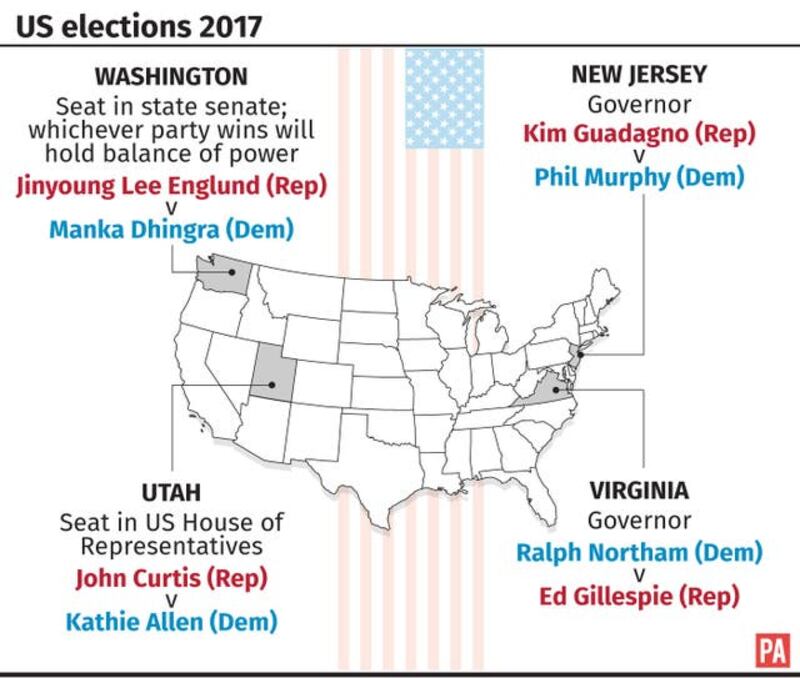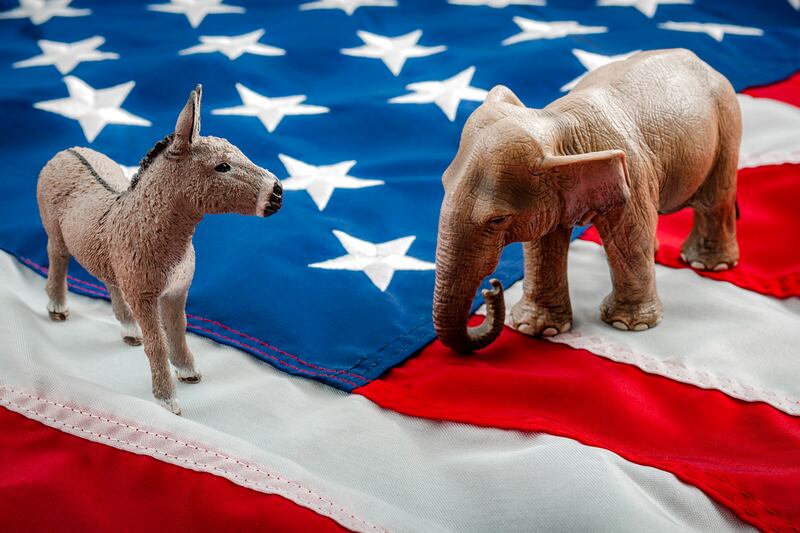Some US voters return to the polls on November 7 in two elections which are seen as a bellwether of American politics.
Voters in New Jersey and Virginia will cast a ballot to choose their states’ new governors, with Donald Trump a background presence in both races even though he is out of the country on a tour of Asia.
These are the only two states to have a governor contest this November in what is called an off-year in US politics. The races fall one year on from the presidential election and a year ahead of the midterms – the middle point of Trump’s presidency – when a raft of congressional and senate elections take place too.
While the New Jersey and Virginia candidates have talked about state issues and concerns, like Britons do in a by-election, a Republican win will also be seen as a stamp of approval for Trump’s time in Washington, whereas a Democratic win would do the opposite, giving them a boost ahead of 2018.

There are also some elections taking place at state senate level, such as in Washington state. Utah, meanwhile, is choosing another Congressman to sit in the House of Representatives.
What’s the situation in New Jersey?
Outgoing governor Chris Christie is a Republican who backed Trump for the presidency after suspending his own campaign to be the Republican Party’s nominee in 2016.
In his place is Kim Guadagno, a Christie deputy, who wants to slash sky-high property taxes.
Against her stands Phil Murphy, a Democrat whose final rally included an appearance by rocker Jon Bon Jovi.
Murphy, who leads in the polls, wants to electrify the state’s sluggish economy. He has seen campaign trail support from former presidents Barack Obama and Bill Clinton, former presidential candidate Hillary Clinton, and former vice presidents Joe Biden and Al Gore.
What’s the situation in Virginia?
Virginia is seen as a swing state and is most likely to be a much closer contest. The state voted for Clinton in 2016. Outgoing governor Terry McAuliffe is also a Democrat.
Hoping to take over the reins is Democrat Ralph Northam, a paediatric neurologist, who has lashed out at Trump, calling him a “dangerous” man and a “narcissistic maniac”, according to the Associated Press, although he has also promised to work with the president as necessary.
Republican Ed Gillespie rarely mentions Trump when he campaigns but has sought to win some of his supporters with ads on immigration and Confederate statues.
How will the parties frame a victory or a loss?

Dr Emma Long, a lecturer in American studies at the University of East Anglia, is confident that the winning party will tie the result to national issues “whether that’s what’s going on” or not.
“Both parties are going to be using any of these election victories to their benefit,” she told the Press Association. “For Republicans, they will be very happy to tie it to Trump. It will bolster Trump against these opinion polls and Democrats will use (a win) to try and attack the administration.
“On off-year elections, the turnout tends to be down and it’s not always indicative of the national mood. It’s often about one side or another being more committed to turning out.
“The party that loses will be trying to talk about anything else. The Republicans will be talking about Trump’s visit to Asia. The Democrats will move on to gun control, anything else.”






